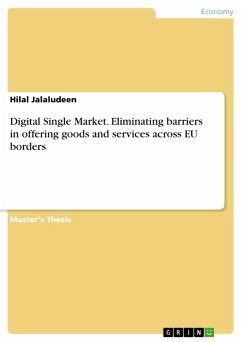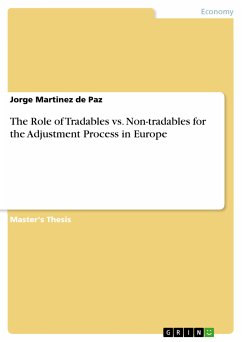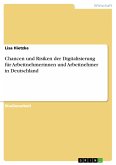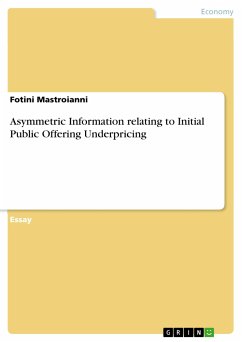Master's Thesis from the year 2019 in the subject Economics - Foreign Trade Theory, Trade Policy, grade: 1.3, Otto Beisheim School of Management Vallendar, language: English, abstract: The author aims at providing an objective and comprehensive analysis of the selected issues (initiatives) under consideration, with respect to the 30 DSM legislative initiatives, addressing 24 issues, proposed by the Juncker Commission since presenting the DSM strategy in 2015. The author then goes on to explain the major issues that the Juncker Commission ignored (or did not address properly) in the 30 DSM legislative initiatives; these have been titled flexible working arrangements: pros and cons, gender digital gap, socio-cultural and political issues, and coherent European strategy for AI. The DSM strategy, presented by the Juncker Commission in 2015, has been a special topic in the EU. Since then, the Juncker Commission has been able to come up with a number of significant DSM legislative initiatives to make good on the promise of laying a strong foundation for the creation of a fully-fledged DSM in the EU. As the Juncker Commission's tenure comes to an end in 2019, it is the right time to reflect on these DSM legislative initiatives and determine its success or lack thereof in eliminating various barriers in offering goods and services across EU borders. As expected, some of these initiatives have been more controversial than others. This implies that some of these initiatives received the most attention from both the critics and the proponents. Undoubtedly, the DSM initiatives have been extensively analysed and written about by many academicians and experts. But, as the author correctly hypothesized, a bulk of this research had been often too narrow. In other words, most of the academic and non-academic papers that have analysed DSM initiatives focused only on a single initiative (the entire paper). Sometimes, the focus of a paper has been even narrower (there are many papers that have focused only on the impact of a particular DSM initiative on a specific variable). The author admits the importance and superiority of this type of research. However, the author opines that it is also important to analyse these initiatives more broadly.
Dieser Download kann aus rechtlichen Gründen nur mit Rechnungsadresse in A, B, BG, CY, CZ, D, DK, EW, E, FIN, F, GR, HR, H, IRL, I, LT, L, LR, M, NL, PL, P, R, S, SLO, SK ausgeliefert werden.









